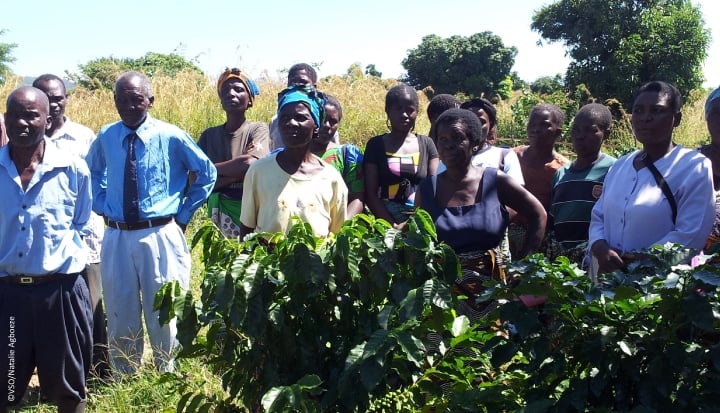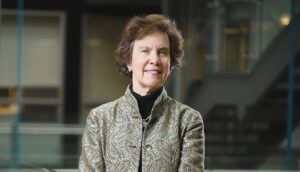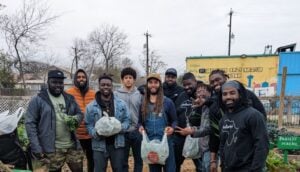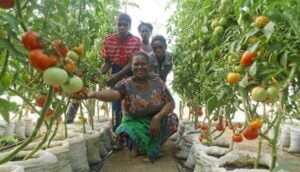What is the development issue?
More than 80% of Malawi’s 17 million people live in rural areas, and agricultural labourers make up 90% of the total labour force1. Despite the fact that Malawi’s economy is based on agriculture, the country depends primarily on one major export crop – tobacco – which accounts for more than 50% of total exports2. This reliance on tobacco puts farmers at risk as global tobacco prices fall, and Malawians are being encouraged to diversify both within agriculture and more broadly across sectors.
Through the Accenture funded Improving Market Access for the Poor project (IMA4P), VSO is working in Malawi to promote enterprise-based development to enable people living in poverty, especially women, to participate in agricultural value chains. The approach will create systemic change by permanently removing barriers to market participation for vulnerable people. Barriers that will be addressed include: lack of basic skills (e.g. financial literacy, farm management, negotiation, and marketing), technical training and infrastructural support, land tenure, access to credit and agricultural inputs, and access to markets and market information.
What is VSO’s intervention?
VSO Malawi started working with Malawi Organic Growers Association (MOGA) in 2009. Having secured investment for two years as part of the Accenture funded IMA4P project, VSO Malawi took the opportunity to further develop their partnership with MOGA by supporting them to take a participatory market systems development approach to the coffee sector. This approach is designed to bring all the actors of a particular market sector together to collectively identify obstacles and opportunities affecting their market system to ensure equitable participation of the poor.
During the first year of the IMA4P project MOGA and VSO have established six co-operatives in the Ntcheu region of Malawi. Each co-operative is managed by a democratically elected board, and each has an average of 350 members. By 2017, the co-operatives aim to support their members to grow at least 3,000 coffee trees per farm, with the vision of reducing poverty within their communities using the income generated from producing organic certified Arabica coffee.
The project is supported by two international volunteers. A Market Assessment volunteer is working with stakeholders to map the coffee value chain and, with the support of communities, identify potential areas for intervention. A volunteer Agronomist is training lead farmers and cooperative members and advising on organic practices and production techniques and the production of high quality coffee to meet market demand.
Dzonzi Mvai Cooperative
Mr and Mrs Wilikoni are members of the Dzonzi Mvai Co- operative in the Ntcheu region of Malawi. The co-operative currently has 220 members, 140 of which are female, and 6,800 coffee trees with many more seedlings in nurseries ready to be planted.
1 CIA data 2 Percentage of total export of tobacco figures vary across different sources and range from 53% to 80%. CIA data has been used in this story.
©VSO/Natalie Agboeze
Challenges faced by the farmers Mrs Chumachiyenda, Chair of the Dzonzi Mvai Board, explained that the main challenges faced by the members of the co-operative are;
• climate change and water shortages,
• limited access to animal manure for fertilizer, and;
• a lack of access to machinery for primary processing of their coffee harvests.
The co-operative members told us that they wanted to join together as a co-operative so that they could have better access to markets, share agricultural inputs between group members, and share the benefits of the knowledge and skills training offered by MOGA.
Benefits of joining the cooperative
As members of the co-operative, the farmers are now receiving training from MOGA on;
•how to mitigate the risks of climate change through improved organic production techniques, and inter- cropping,
•how to develop organic plant-based manure which reduces the reliance on animal manure, and
•how to use machinery to support coffee processing.
As a result of the IMA4P project, the six co-operatives, including Dzonzi Mvai, now have access to pulping machines – an essential step in mechanising the primary processing of the coffee.
The pulping machine enables farmers to remove the red cherry around the bean by machine rather than hand; by hand it is a labour intensive process which has to be completed within 6-8 hours of picking the cherry before the fruit ferments and spoils the bean.
Mr and Mrs Wilikoni
Mr and Mrs Wilikoni have six hectares of land. They first harvested coffee from their trees in 2014, but the yield was so small that they did not record the number of kilogrammes they produced. One year later, the mature trees are heavy with coffee cherries, and they anticipate a yield of around 1,350 kilogrammes of red cherries from the 900 coffee trees they currently have at fruiting stage.
Mr and Mrs Wilikoni have already started processing some of this year’s harvest by hand. This involves manually crushing the cherries against a stone, using water to wash away the fruit and leave the ‘parchment’ which – in the next stage of processing – becomes the green bean.
By hand, Mr and Mrs Wilikoni can process 10kg of red cherries in eight hours. Without access to a pulping machine they would not have the resources to process their full harvest before the cherries spoil. Now that the pulping machines are available, Mr and Mrs Wilikoni will be able to mechanically process up to 500kgs of red cherries in 1 hour. By processing their full harvest within a much shorter timescale Mr and Mrs Wilikoni will be able to avoid wastage and earn more money from their harvest.
As a result of the training from MOGA, Mr and Mrs Wilikoni have learned about the value of intercropping other plants with their coffee trees and now grows bananas, soya beans and tomatoes on their land.
There are numerous benefits to intercropping, including improving the growing conditions for the coffee trees, and enabling the farmers to diversify their crops for both food security and sources of income. Mr Wilikoni has started to plant Moringa as a boundary crop around his coffee field, which will provide shade for the trees, give nutrients to the soil and potentially generate another source of income as Moringa is a valuable cash crop due to its medicinal properties and high nutrient content.
Result of the intervention
MOGA hope that access to the pulping machine, and the training opportunities led by VSO and MOGA, is just the start of things to come for the Dzonzi Mvai Co- operative and their members, such as Mr and Mrs Wilikoni.
With VSO’s support, MOGA will assist the six co-operatives to become strong, sustainable groups with robust governance structures. They will work with extension workers and lead farmers to provide targeted training to the co- operative members, and they will work with the farmers to improve the quality and quantity of coffee produced. In turn, it is anticipated that the farmers and co-operative members will;
• Produce high quality organic coffee to sell through MOGA who will support them to identify reliable coffee buyers and secure fair prices.
• Have the skills, knowledge and confidence to participate and negotiate in the coffee value chain.
• See farming as a business, using new financial literacy and business skills to expand their enterprises, increase their income and hopefully offer new employment opportunities to individuals in their community
• Develop savings and use this money to support their families, giving them choices around their health and education and ensuring they have options to grow their business










